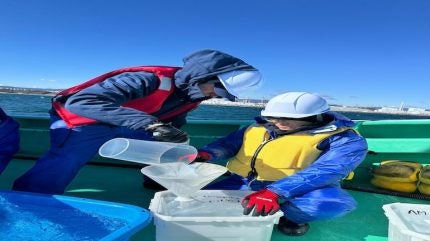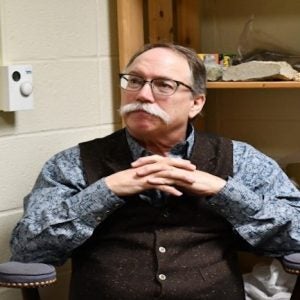
International Atomic Energy Agency (IAEA) Director General Rafael Mariano Grossi joined scientists from China, South Korea, and Switzerland, along with IAEA experts, as they collected seawater samples near the Fukushima Daiichi NPP.
This is part of the additional measures established after China and Japan agreed to extend the sampling and testing of treated water which Tokyo Electric Power Company (Tepco) started to discharge in August 2023. Contaminated water, used to cool the melted reactor cores in the aftermath of the 2011 nuclear disaster at Fukushima, is stored in around 1,000 huge tanks at the plant containing more than 1.3m tonnes and total storage capacity has been reached. The contaminated cooling water and groundwater is treated by the Advanced Liquid Processing System (ALPS), which removes most of the radioactive contamination, with the exception of tritium. The treated water is then stored in other tanks before being diluted with seawater to one-fortieth of the concentration permitted under Japanese safety standards before being released in batches one kilometre off the power plant.
“By welcoming countries to engage directly in sampling and analysis under the additional measures, Japan is increasing transparency, understanding, and trust, particularly in the region.” said Grossi. “Through these efforts, third parties can independently verify that water discharge levels are, and will continue to be, in strict compliance and consistent with international safety standards.”
During the latest sampling t, scientists from the Third Institute of Oceanography in China, the Korean Institute for Nuclear Safety and the Spiez Laboratory in Switzerland collected seawater samples from a boat in the vicinity of the plant.
The samples will be analysed by the IAEA laboratories in Monaco, by laboratories in Japan and in the participating laboratories from China, Korea and Switzerland, each member of the IAEA’s Analytical Laboratories for the Measurement of Environmental Radioactivity (ALMERA) network, chosen to ensure a high level of proficiency and expert data.
“Additional measures focus on expanding international participation and transparency, allowing hands-on independent measurements of the concentration level of the water,” said Grossi. “This work is conducted within agreed parameters set by the IAEA in its role as an independent, impartial and technical organisation.”
Additionally, IAEA experts stationed at the Agency’s office at Fukushima conduct regular independent on-site analyses of the batches of treated water. The Agency has confirmed that the tritium level in the ten batches of ALPS treated water already released was far below Japan’s operational limit. The IAEA initiated the first practical steps of the additional measures in October last year when Agency staff carried out marine sampling with international experts from China, Republic of Korea and Switzerland.






